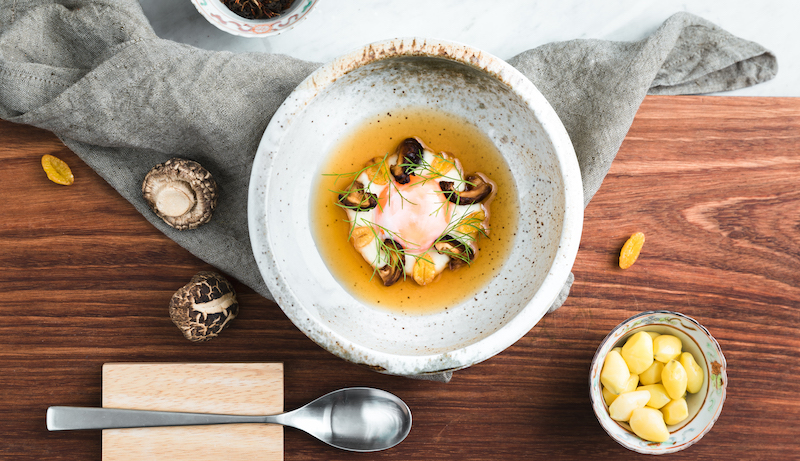COCONUTS HOT SPOT — In 2015, Woo Wai Leong braved the heat of the kitchen (and the competition) to emerge victorious as the winner of the inaugural MasterChef Asia, beating his Malaysian rival in the process. Much fanfare followed, especially since it was a Singaporean who took home the crown.
Fast forward almost three years, and the man has a plethora of pop-up dinners, bartending gigs, and chef collaborations under his belt. And now his own restaurant, of course — the newly-opened Restaurant Ibid is Woo’s first foray into the dining scene, and it’s named after the abbreviated Latin word meaning “from the same source,” which describes the concept of exploring his roots, origins, and heritage as his culinary inspiration.
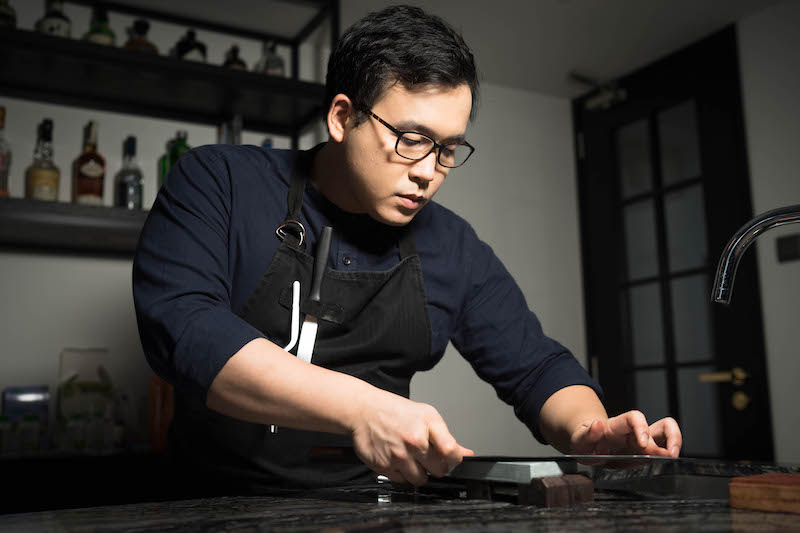
If you were to put a label on the food here, then “Nanyang-style” cuisine is the closest (rather than mod-Sin or modern Chinese). Think of it as creations influenced by Woo’s Chinese heritage paired with his Western culinary techniques, in a repertoire of recipes that the chef has experimented with and honed over the past couple years.
The sleek, minimalistic 54-seater restaurant is nestled on a ground floor shop house along North Canal Road, further afield from the rowdy nighttime crowds of Circular Road’s bars and pubs. Its entrance is so modest that if you blink, you may actually miss it. But once you’re in, the space has a more welcoming feel with its contemporary Chinoiserie decor, beginning with an elegant feature wall of wooden traditional Chinese medicine drawers.
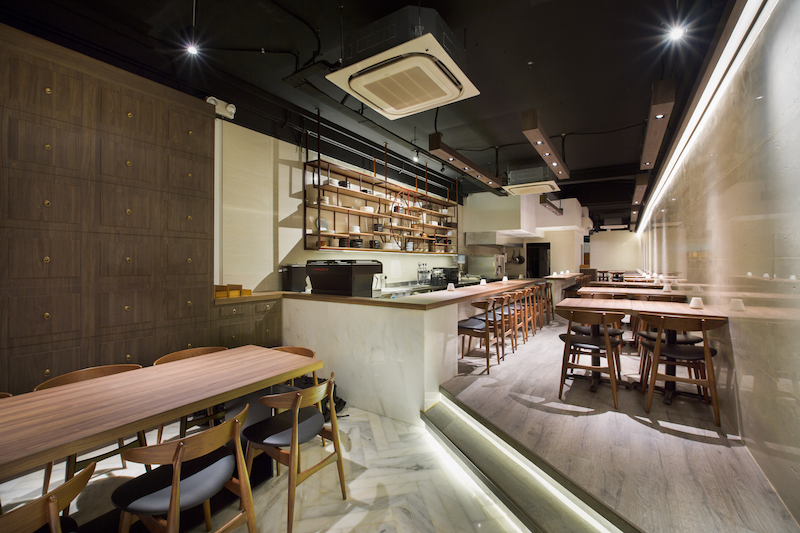
Amidst the off-white, grey, and celadon tones, the best spot to settle into is the line of counter seats that throw diners into the heat of it all with a front row view of Woo’s cooking action. There’s also a metal-and-wood hanging shelf behind the open kitchen counter that takes the shape of a classic Chinese latticed window frame. Neat.
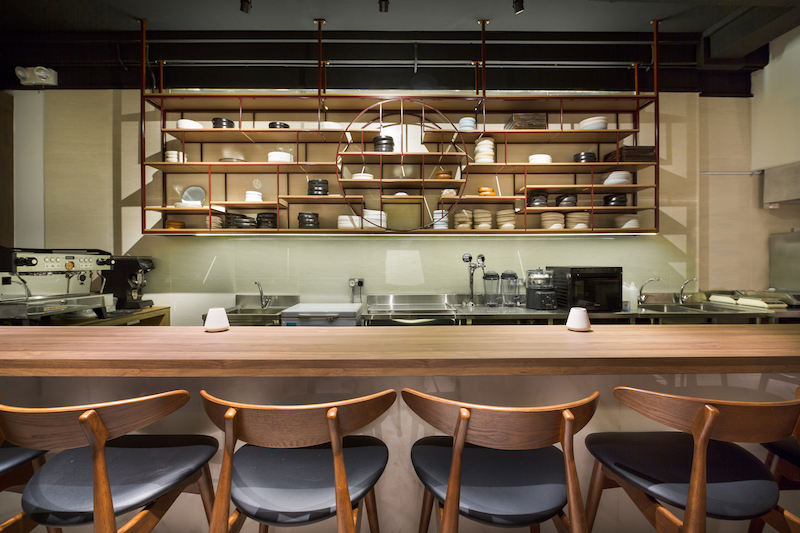
Restaurant Ibid is currently only open for dinner, with a menu that looks deceivingly simple, but actually shows much thought and finesse. There’s an option for four ($78), six ($88), or eight ($118) courses. With the four-course set, you get to choose one appetizer, one main, and one dessert to go with the fixed dish (lotus rice), while the other two are tasting menus decided by the chef.
If you ask us, it looks like the six course option is most worth it for the price, and for portions that are just right — but if you’re a MasterChef or Woo Wai Leong uber fan, then maybe you’ll want to spring for eight courses to get the entire experience.
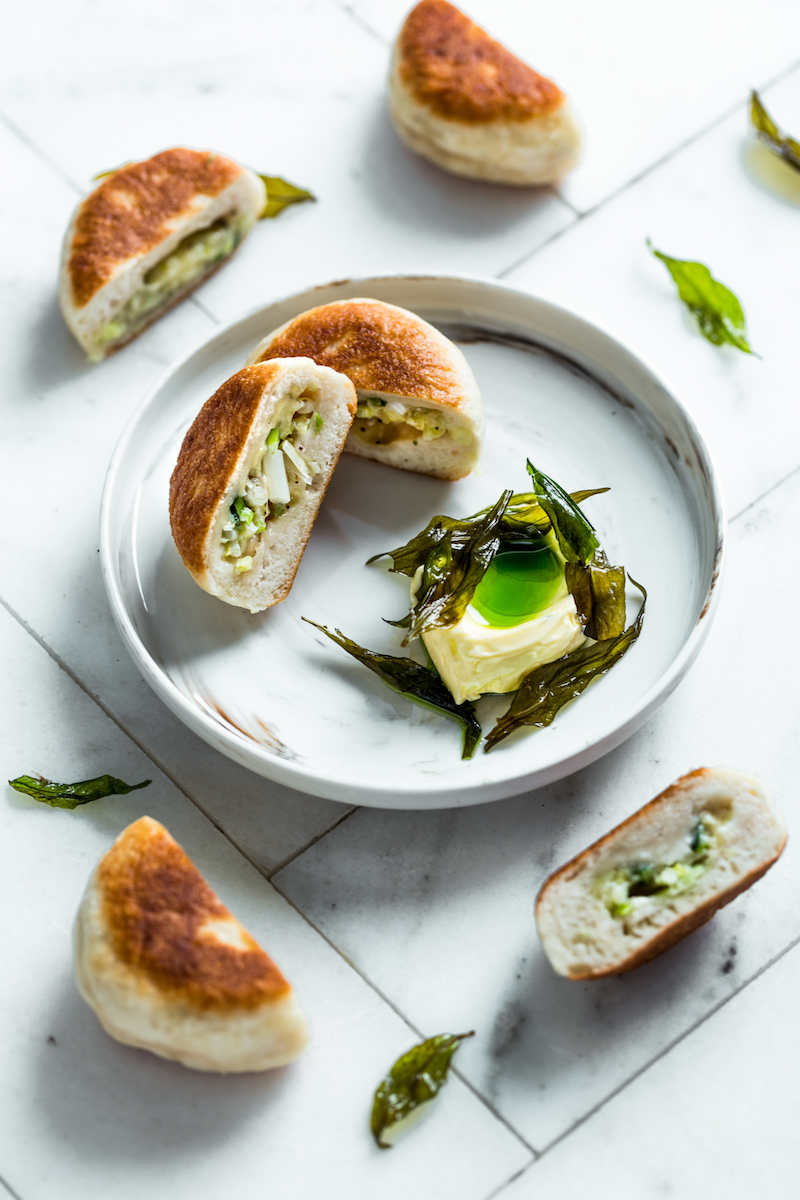
To kick off the meal, the restaurant offers two complimentary starters: shao bing (Chinese layered flatbread) stuffed with a mix of spring onions, mozzarella, black pepper, and sesame oil, served with yeasted butter and laksa leaves, followed by grilled escargot skewers that are nicely charred and wrapped with betel leaves for a pleasant tinge of bitterness.
As for the appetizers, there’s just something familiar and comforting about Woo’s “porridge,” which is made with white radish trimmings that are boiled until soft and cooked with overnight rice and soy milk, then topped with bits of century egg, bamboo shoot, and radish strips.
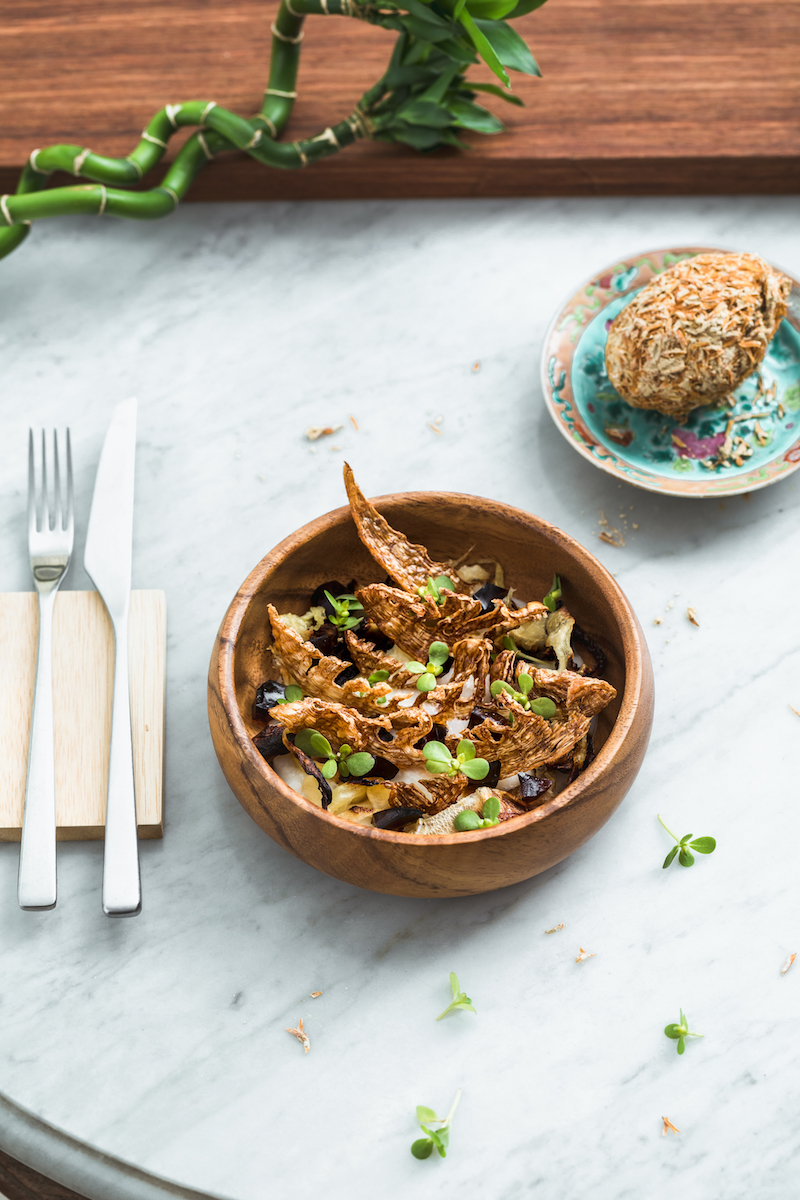
But what’s really distinctive is his rendition of the traditional Chinese tea egg — here, it’s a sous vide egg yolk of jam-like consistency with white onions, shiitake mushrooms, and gingko nuts swimming in an aromatic broth of aged mandarin peels, pu-er tea leaves, crystal rock sugar, and kelp. This is the kind of dish that really reminds you why (and how) Woo won that MasterChef title.
Moving on to the mains, the Momoiro pork collar is a definite standout, with the protein brined in a mix of water, salt, and sugar before it’s grilled over charcoal for a tender and juicy finish. The meat is served with trimmings of sweet potato, savoy cabbage, and a sauce made of caramel glazed with black vinegar, red fermented beancurd, and wine lees made of red glutinous rice.
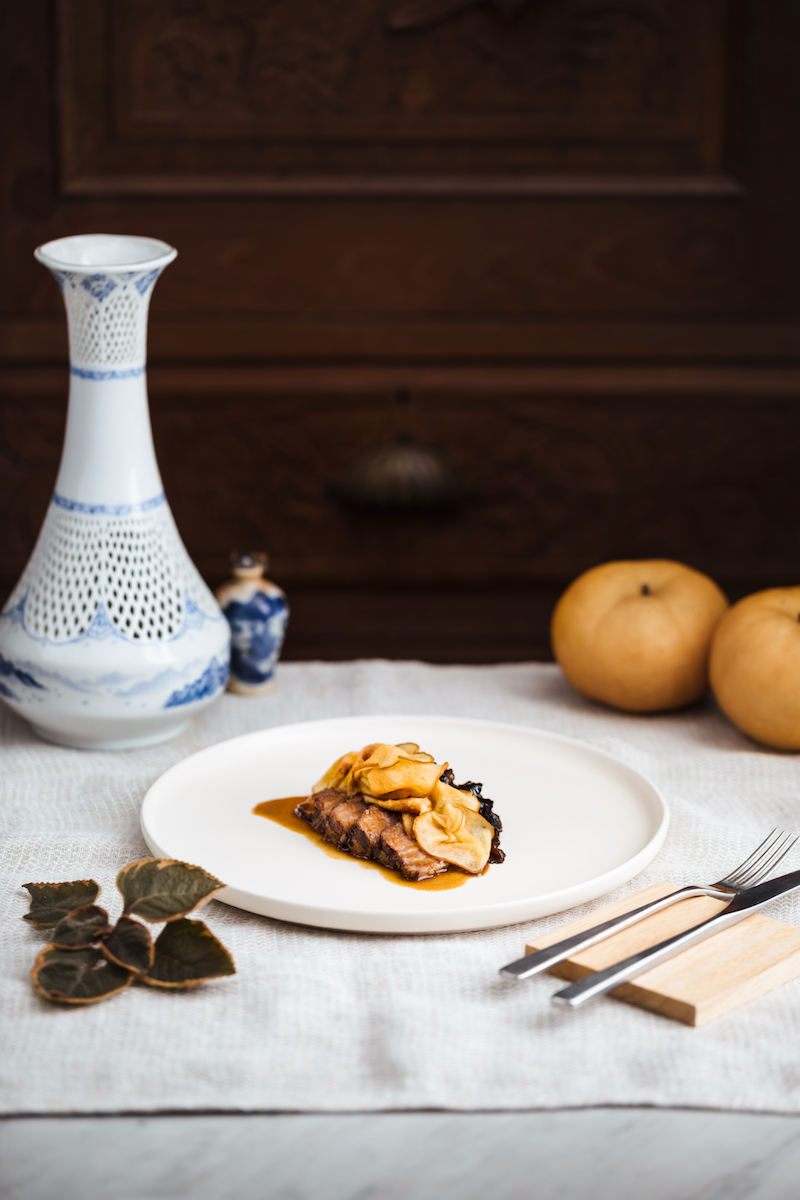
Alternatively, in seafood, they’ve got the Ah Hua Kelong grouper atop a bed of tofu butter (sounds strange, but it works). Then there’s the angelica root short rib with black garlic mashed potatoes, soya sauce pickled black fungus, and Chinese pears that have been dehydrated then rehydrated for a chewy texture. If you’ve followed Woo’s career, you’ll recognize the latter from his previous pop-ups, although it’s gone through endless reworks since.
To end the savory part of the meal — just like what you’d get at Chinese wedding banquets here, where carbs come last (sadly enough) — unwrap your lotus leaf to uncover a mixture of short grain and glutinous rice studded with dried shiitake mushrooms and grated preserved liver sausage. You’ll also find a piece of seared foie gras hidden in the center of the dish. Yeah, your childhood comfort food just got elevated. Big time.
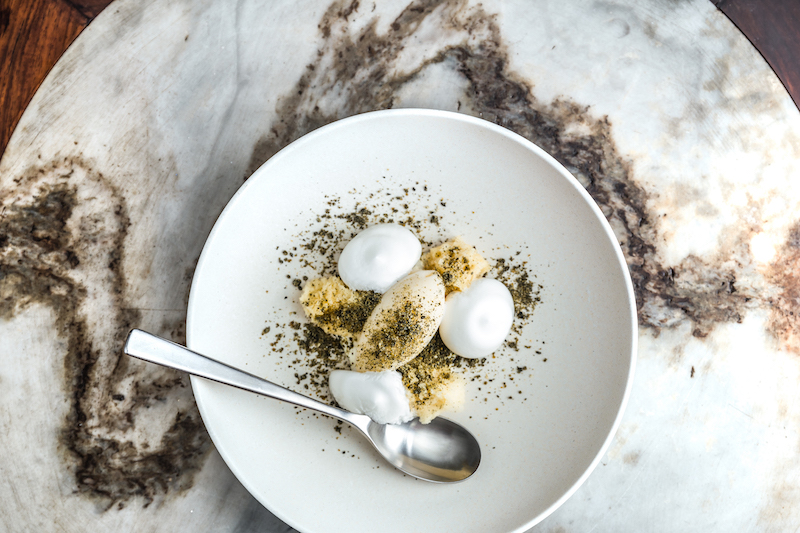
When it comes to sweet treats, you only get to choose between hibiscus tang yuan (sweet dumplings) with ginger sugar crumble, red bean jam, and yogurt ice cream, and sesame cake with almond foam and ice cream made from soy milk and tofu. Either way, you’ll leave satisfied, but we prefer the latter — the non-dairy ice cream was just so light and refreshing that it had us reaching for more.
And there you have it. The menu for the restaurant of the first ever MasterChef Asia champion. Impressive stuff, indeed.
Restaurant Ibid is at 18 North Canal Rd, 9151-8698. Mon-Sat 6:30pm-10:30pm.
